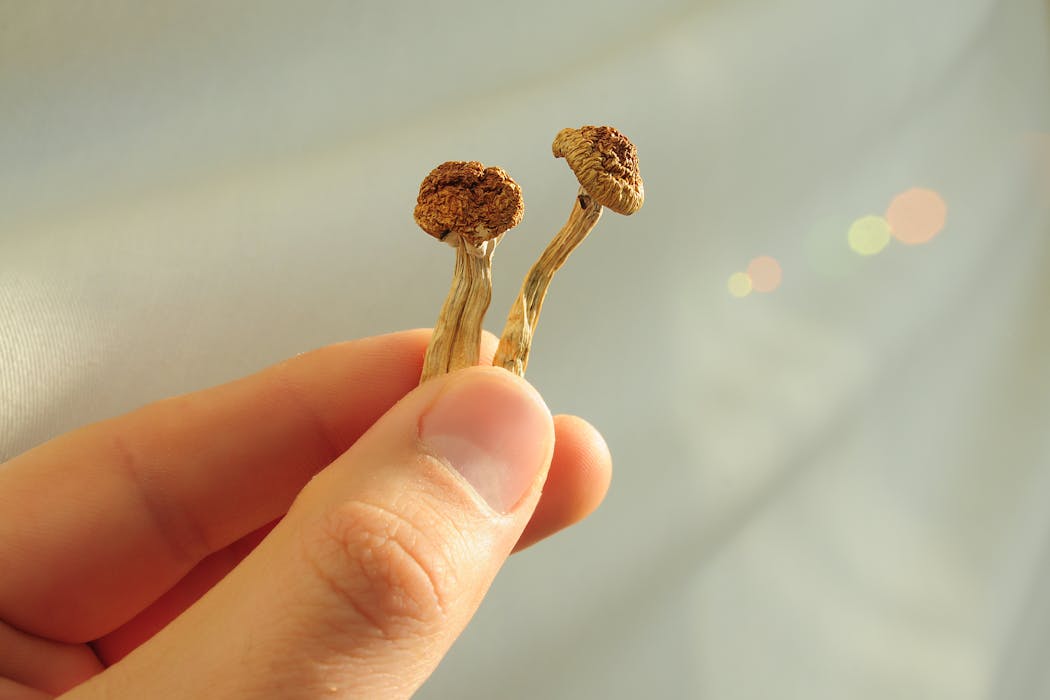
Once synonymous with hippies and hallucinatory experiences, psychedelic drugs are now being explored for their medical potential. The stigma of that era resulted in research being suppressed by drug laws, yet with mental health treatments hitting limits, scientists have returned to this controversial corner of medicine.
Substances like psilocybin (found in magic mushrooms) and ayahuasca are now being taken seriously by scientists and doctors, not for the visions they induce, but for the healing potential they possess.
Initially, this focused on treating mental health conditions like depression, where currently prescribed drugs only help a minority of patients. But these investigations have now expanded to include diseases driven by inflammation, which psychedelic drugs may help reduce by calming down the immune system.
In both human cells grown in laboratory dishes and animal studies, psychedelic drugs like DMT, LSD, and a compound called (R)-DOI can block the release of inflammatory molecules called cytokines. These protein molecules fuel conditions like rheumatoid arthritis, asthma and even depression, as well as increasing brain damage following traumatic brain injury.
Advantage over steroids
But these drugs have a considerable advantage over typical anti-inflammatory medications like steroid drugs because psychedelics appear to work without suppressing healthy immune function, which is a major problem with steroids.
Significantly, these laboratory findings are beginning to be confirmed in studies in humans. Evidence is growing that psychedelics could hold the key to managing inflammation, one of the body’s central drivers of many chronic diseases, including depression, arthritis and heart conditions.
Take psilocybin, the active ingredient in magic mushrooms. In a study involving 60 healthy participants, just one dose was enough to significantly lower levels of two key inflammatory molecules – TNF-alpha and IL-6 – over the following week.
However, not all studies have shown the same clear results. Some only had a few participants and others were complicated by the fact that some participants had previous drug experience, which could affect the results.
One big challenge with studying psychedelics in medical research is that it’s very hard to hide who got the real drug and who got a placebo. When someone has a strong psychedelic experience, it’s obvious they didn’t just take a sugar pill.

That makes it challenging to interpret the results, especially for aspects like mood, which can be significantly influenced by expectations. Even changes in the body, such as inflammation, might be affected by this placebo effect.
Meanwhile, the powerful Amazonian brew ayahuasca, which contains the psychedelic drug DMT, showed promising results in both healthy people and patients with hard-to-treat depression. In one study, those given ayahuasca had reduced levels of an inflammatory marker called CRP.
The bigger the drop in CRP, the greater their mood improvements. This suggests that reducing inflammation may play a role in improving mental health and adds to growing evidence that conditions like depression and schizophrenia are connected to inflammation in the body.
Scientists think psychedelics mainly work by acting on something called the 5-HT2A receptor, a part of brain cells that usually responds to serotonin, often nicknamed the “happy hormone”.
This receptor sets off a chain of chemical reactions inside cells. But here’s the surprising part: the anti-inflammatory effects of psychedelics might not rely on the same processes that cause the mind-altering experiences, such as certain calcium signals and other well-studied pathways. Indeed, researchers believe different, less-understood mechanisms may be involved – though they haven’t figured out exactly what those are yet.
In one animal study of asthma, a chronic inflammatory condition, two drugs with similar psychedelic effects, (R)-DOI and (R)-DOTFM, had vastly different anti-inflammatory results. The first drug completely reversed inflammation, while the other did nothing. This further suggests that anti-inflammatory effects may be separate from psychedelic effects, potentially opening the door to developing safer medication.
The next generation of anti-inflammatory treatments may come from what I call Pipi drugs – psychedelic-informed but psychedelic-inactive compounds. These are medications designed to mimic the therapeutic benefits of psychedelics without causing hallucinations.
Several such drugs have now been identified, such as DLX-001 and DLX-159, which are being developed by Delix Therapeutics, an American pharmaceuticals company. These experimental drugs show responses indicating antidepressant effects without causing a “trip”. This could transform how we treat a host of conditions tied to inflammation, without the regulatory complications or patient reluctance often associated with psychedelics.
Although research is still in the early stages, evidence is building that psychedelics – or new drugs developed from them – could become an entirely new type of anti-inflammatory treatment. As studies begin to include people with long-term inflammatory illnesses and use more rigorous and innovative placebo-controlled designs, we may find that the mind-bending world of psychedelics holds unexpected tools for fighting disease.
The potential to separate the healing properties from the hallucinogenic effects could revolutionise treatment for countless patients suffering from conditions where inflammation plays a central role.
This article is republished from The Conversation, a nonprofit, independent news organization bringing you facts and trustworthy analysis to help you make sense of our complex world. It was written by: Nicholas Barnes, University of Birmingham
Read more:
- Using ‘trip killers’ to cut short bad drug trips is potentially dangerous
- Lasting relief from depression after magic-mushroom treatment – new study
- We now know what a brain looks like on psilocybin – but what does that tell us?
Nicholas Barnes owns shares and is a Director of Celentyx Ltd; a pharmecuetical R&D company that performs research aimed at identifying new and improved ways to treat diseses involving the immune system.


 The Conversation
The Conversation
 Reuters US Top
Reuters US Top Atlanta Black Star Entertainment
Atlanta Black Star Entertainment Associated Press Top News
Associated Press Top News Sun Sentinel
Sun Sentinel NPR
NPR The Daily Beast
The Daily Beast The US Sun Health
The US Sun Health Raw Story
Raw Story